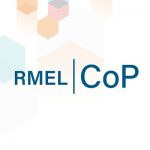“When a billion slum dwellers are engaged in the process of defining, planning, monitoring and evaluating resilience we lay the ground for truly transformative contributions to resilience learning and influence.”
The challenge: “Generally, urban frameworks focus primarily on systems, institutions, and policies that deliver resilience, rather than on the agency of people and the resources available to them”. (Analysis of resilience measurement frameworks and approaches, 2016)
The innovation response: To pilot ways to strengthen the connections between the city level resilience planning and slum dwellers, through the integration of SDI’s Know Your City data into the 100RC Resilience Strategy development process in Accra and Cape Town.
This pilot will demonstrate pathways to support ‘bottom-up’ city resilience planning in a way that is driven by informal and (often) marginalized groups such as slum dwellers, particularly women. It will provide insights for other 100RC cities in how to use data and knowledge from informal settlement to inform their Resilience Strategy; it will deepen relationships between slum communities and city governments and increase understanding of the possibilities for inclusion of informal settlements in a city’s resilience-building; and it will promote appreciation among resilience measurement and monitoring, evaluation and learning specialists of the value addition in applying community-gathered data to resilience planning, action, monitoring and evaluation in the urban context.
For more information, visit the Resilience Measurement Evidence and Learning Community of Practice.


